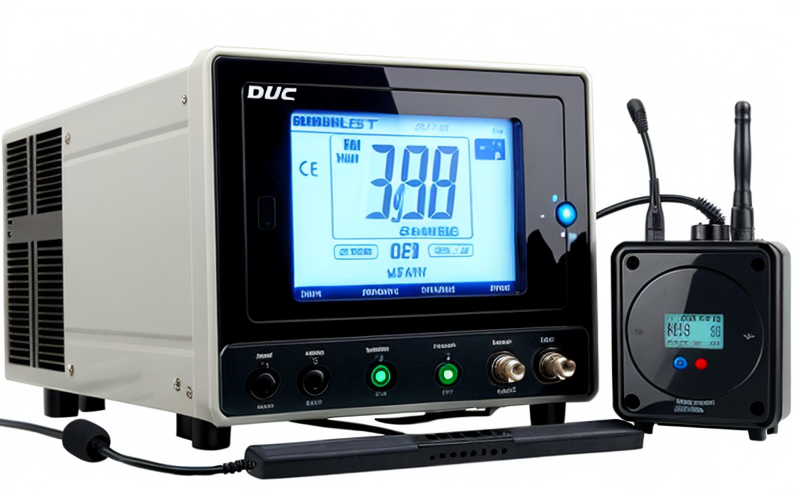BS EN 302 208 RFID Equipment RF Testing in the UK
The British Standard EN 302 208 is a critical document for ensuring that Radio Frequency Identification (RFID) equipment adheres to the necessary technical requirements and standards set by European regulations. This standard aims to ensure interoperability, reliability, and compliance with electromagnetic compatibility (EMC) directives across different markets in Europe.
RFID technology plays a pivotal role in various industries including healthcare, logistics, retail, and transportation. The performance of RFID equipment is crucial for the seamless operation of these systems. This comprehensive test ensures that devices meet the stringent requirements set by EN 302 208, which covers aspects such as frequency bands, power levels, modulation schemes, and emission limits.
The testing process involves several stages to ensure compliance with the standard. It starts with a thorough assessment of the equipment's design specifications against the criteria outlined in the standard. This is followed by a series of tests that include emissions tests, immunity tests, and functional performance checks. The test setup typically includes calibrated anechoic chambers, spectrum analyzers, and other specialized equipment to measure the emitted signals accurately.
The importance of this test cannot be overstated. It ensures that RFID devices are safe for use in various environments while also ensuring they meet the necessary technical specifications required by law. Compliance with EN 302 208 is essential for manufacturers who wish to sell their products in Europe, as it helps avoid potential legal issues and enhances customer trust.
For quality managers and compliance officers, this test provides a clear pathway to ensure that all RFID equipment meets the necessary standards before being released into the market. R&D engineers can leverage these tests to refine their designs and improve product performance. Procurement teams can use the results of these tests as part of their supplier evaluation process.
The standard itself is based on international best practices, ensuring that it remains relevant even as technology evolves. This makes it a reliable benchmark for manufacturers looking to ensure the quality and safety of their products.
Scope and Methodology
The scope of BS EN 302 208 RFID Equipment RF Testing encompasses a wide range of parameters that are critical for ensuring the proper functioning and compatibility of RFID equipment. The methodology involves several key steps to ensure comprehensive testing.
Frequency Bands: The test covers various frequency bands, including UHF (Ultra High Frequency), which is commonly used in RFID systems due to its high data rates and long-range capabilities. The tests are conducted across these bands to ensure that the equipment performs consistently within the specified limits.
- Emission Limits: Ensuring that emissions do not exceed permissible levels, thus preventing interference with other devices.
- Modulation Schemes: Verifying that the equipment uses acceptable modulation schemes for reliable data transmission.
The testing process also includes functional performance checks to ensure that the equipment operates correctly under various conditions. This involves real-world scenarios and stress tests to simulate potential operational environments.
The methodology is designed to be rigorous, using state-of-the-art equipment and techniques to provide accurate and reliable results. The use of calibrated anechoic chambers ensures that the measurements are free from external interference, providing a controlled environment for testing.
Benefits
- Interoperability: Ensures seamless communication between RFID devices across different systems and environments.
- Reliability: Reduces the risk of malfunctions or failures, enhancing overall system performance.
- Compliance: Helps manufacturers meet regulatory requirements, avoiding potential legal issues.
- Customer Trust: Builds confidence among consumers and stakeholders by demonstrating adherence to high standards.
The benefits of this test extend beyond just compliance with regulations. By ensuring that RFID equipment meets the necessary technical specifications, it also enhances product quality and reliability. This is particularly important in industries where precision and accuracy are critical for safe operation. Additionally, compliant products are more likely to be accepted by international markets, expanding business opportunities.
The testing process provides a robust framework for manufacturers to ensure that their equipment meets the necessary standards before being released into the market. This not only helps avoid potential legal issues but also enhances customer trust and satisfaction. For quality managers and compliance officers, this test offers a clear pathway to ensure product quality and safety.
Why Choose This Test
- Regulatory Compliance: Ensures that RFID equipment meets the necessary standards set by EN 302 208, facilitating market entry in Europe.
- Quality Assurance: Provides a rigorous testing process to ensure product reliability and performance.
- Interoperability: Guarantees seamless communication between RFID devices across different systems and environments.
- Customer Trust: Builds confidence among consumers and stakeholders by demonstrating adherence to high standards.
The choice of this test is driven by the need for quality, reliability, and regulatory compliance. Manufacturers who choose this test can ensure that their products meet the necessary technical specifications before being released into the market. This not only helps avoid potential legal issues but also enhances customer trust and satisfaction. For R&D engineers and procurement teams, this test offers valuable insights into product performance and design improvements.
The testing process provides a robust framework for manufacturers to ensure that their equipment meets the necessary standards. This is particularly important in industries where precision and accuracy are critical for safe operation. Additionally, compliant products are more likely to be accepted by international markets, expanding business opportunities.





